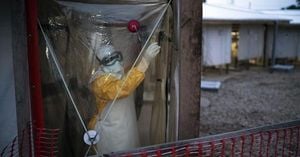With food safety once again taking center stage, two significant lawsuits surrounding E. coli outbreaks have emerged, shedding light on troubling patterns of contamination linked to prominent food brands. These events have sparked outrage among consumers and are prompting discussions about accountability and safety protocols.
The first case concerns Grimmway Farms, known for its organic produce. Ron Simon & Associates, along with The Gomez Trial Attorneys, have initiated legal action against the company following a multistate outbreak of Shiga toxin-producing Escherichia coli (E. coli) infections. This serious bacterium has been associated with the consumption of the company’s organic whole and baby carrots, making headlines as more than 39 confirmed cases have been reported across 18 states, resulting in several hospitalizations.
This legal suit was filed on behalf of Melinda Pratt, who purchased Bunny Luv Fresh Organic Carrots and fell gravely ill shortly after. "It was terrible—like nothing I’ve experienced before," Pratt recounted, as she described her symptoms, which rapidly escalated from basic stomach discomfort to severe bloody diarrhea and vomiting. After two weeks of enduring her declining health, she went to the hospital, where she was diagnosed with E. coli. Her experience highlights the very real dangers posed by contaminated food products.
The lawsuit argues not only for individual compensation but also aims to raise awareness about the public health risks associated with foodborne illnesses, particularly those caused by E. coli. Attorney Ron Simon has urged consumers to dispose of any Grimmway Farms carrots they may still possess and to contact healthcare providers if unusual symptoms develop. The CDC has noted the increasing cases of reported infections linked to this outbreak, which can lead to kidney failure and other serious complications.
Meanwhile, across the country, fast-food giant McDonald's is facing its own lawsuit after the tragic death of 6-year-old Angelica Vazquez, whose mother claims was due to contaminated food purchased from their restaurant. The child ate a cheeseburger, reportedly containing E. coli, just before Halloween and fell ill shortly afterwards. "It was all so sudden," lamented Samantha Ocasio, the child’s mother. After initially brushing off her daughter’s nausea as common stomach trouble, Ocasio’s worst fears were realized when Angelica collapsed and suffered cardiac arrest just days later.
Health officials have indicated the E. coli outbreak is connected to onions used on some of the cheeseburgers. The CDC has recorded over 100 cases of illness linked to the franchise, ranging across 13 states. McDonald's has confirmed the situation and pledged to implement new supplier protocols for their toppings, ensuring no more slivered onions will end up on their Quarter Pounders until they can guarantee safety.
These incidents bring to light the serious repercussions of foodborne illnesses, which can undermine the public's trust in food suppliers, reminding consumers just how vulnerable they can be. Both lawsuits stand as attempts to hold these corporations accountable and demand significant changes to their safety practices. With the stakes this high, many are left wondering: what more can be done to safeguard consumers against future outbreaks of foodborne diseases?



